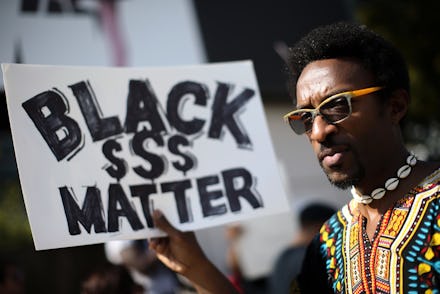Black Lives Matter aids African-American entrepreneurs with #BackingBlackBusiness campaign

Just in time for those who have pushed their holiday shopping into the last week before Christmas, the Black Lives Matter Global Network launched an online African-American small business directory on Monday.
"BackingBlackBusiness.com" is a Google Maps-based, smartphone-optimized website that displays the relevant businesses in their area. In its beta iteration, the directory has over 300 black-owned business, the group said in a press statement.
That's a tiny fraction of the estimated 2.6 million black businesses in the U.S., according the U.S. Census Bureau. The network said it hoped to continue building the directory beyond the holidays and into 2017.
"Black-owned business have long been a staple in the black community, providing jobs, economic security and a somewhere for us to go and feel seen and safe," BLM cofounder Patrisse Cullors said in the statement. "In these uncertain times, we need these places more than ever."
The website, created in partnership with New York City-based ad agency J. Walter Thompson, is also programmed to allow black entrepreneurs to add their own businesses to the map, according to the agency.
"Our hope is to reduce the racial disparity that exists in economic well-being through the promotion of black business ownership," Brent Choi, J. Walter Thompson's chief creative officer, said in the statement announcing the campaign with BLM.
U.S. census data shows the number of black-owned firms increased 34.5%, at last measure, from 1.9 million in 2007 to 2.6 million in 2012. Meanwhile, the wealth gap between blacks and whites is staggering.
A June 2016 report by the Pew Research Center shows that, in 2013, white households had a median wealth of nearly 13 times the median wealth of black households. That's $144,200 for whites versus $11,200 for blacks.
BLM said the campaign aligns with its 2017 goal of building black power through economic empowerment. More broadly, BLM's campaign reflects a pillar of the Movement for Black Lives' policy platform. In "A Vision for Black Lives," the economic justice pillar calls on governments to support "trade across and in black communities globally."